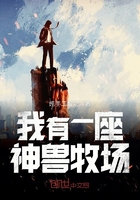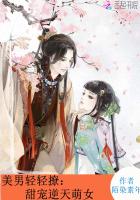When I was a boy there were two curious men running about who were called the optimist and the pessimist. I constantly used the words myself, but I cheerfully confess that I never had any very special idea of what they meant. The only thing which might be considered evident was that they could not mean what they said; for the ordinary verbal explanation was that the optimist thought this world as good as it could be, while the pessimist thought it as bad as it could be. Both these statements being obviously raving nonsense, one had to cast about for other explanations.
An optimist could not mean a man who thought everything right and nothing wrong. For that is meaningless; it is like calling everything right and nothing left. Upon the whole, I came to the conclusion that the optimist thought everything good except the pessimist, and that the pessimist thought everything bad, except himself.
It would be unfair to omit altogether from the list the mysterious but suggestive definition said to have been given by a little girl, "An optimist is a man who looks after your eyes, and a pessimist is a man who looks after your feet." I am not sure that this is not the best definition of all. There is even a sort of allegorical truth in it. For there might, perhaps, be a profitable distinction drawn between that more dreary thinker who thinks merely of our contact with the earth from moment to moment, and that happier thinker who considers rather our primary power of vision and of choice of road.
But this is a deep mistake in this alternative of the optimist and the pessimist. The assumption of it is that a man criticises this world as if he were house-hunting, as if he were being shown over a new suite of apartments. If a man came to this world from some other world in full possession of his powers he might discuss whether the advantage of midsummer woods made up for the disadvantage of mad dogs, just as a man looking for lodgings might balance the presence of a telephone against the absence of a sea view.
But no man is in that position. A man belongs to this world before he begins to ask if it is nice to belong to it. He has fought for the flag, and often won heroic victories for the flag long before he has ever enlisted. To put shortly what seems the essential matter, he has a loyalty long before he has any admiration.
In the last chapter it has been said that the primary feeling that this world is strange and yet attractive is best expressed in fairy tales. The reader may, if he likes, put down the next stage to that bellicose and even jingo literature which commonly comes next in the history of a boy. We all owe much sound morality to the penny dreadfuls. Whatever the reason, it seemed and still seems to me that our attitude towards life can be better expressed in terms of a kind of military loyalty than in terms of criticism and approval. My acceptance of the universe is not optimism, it is more like patriotism. It is a matter of primary loyalty.
The world is not a lodging-house at Brighton, which we are to leave because it is miserable. It is the fortress of our family, with the flag flying on the turret, and the more miserable it is the less we should leave it. The point is not that this world is too sad to love or too glad not to love; the point is that when you do love a thing, its gladness is a reason for loving it, and its sadness a reason for loving it more. All optimistic thoughts about England and all pessimistic thoughts about her are alike reasons for the English patriot. Similarly, optimism and pessimism are alike arguments for the cosmic patriot.
Let us suppose we are confronted with a desperate thing--say Pimlico. If we think what is really best for Pimlico we shall find the thread of thought leads to the throne or the mystic and the arbitrary. It is not enough for a man to disapprove of Pimlico: in that case he will merely cut his throat or move to Chelsea.
Nor, certainly, is it enough for a man to approve of Pimlico: for then it will remain Pimlico, which would be awful.
The only way out of it seems to be for somebody to love Pimlico: to love it with a transcendental tie and without any earthly reason.
If there arose a man who loved Pimlico, then Pimlico would rise into ivory towers and golden pinnacles; Pimlico would attire herself as a woman does when she is loved. For decoration is not given to hide horrible things: but to decorate things already adorable.
A mother does not give her child a blue bow because he is so ugly without it. A lover does not give a girl a necklace to hide her neck.
If men loved Pimlico as mothers love children, arbitrarily, because it is THEIRS, Pimlico in a year or two might be fairer than Florence.
Some readers will say that this is a mere fantasy. I answer that this is the actual history of mankind. This, as a fact, is how cities did grow great. Go back to the darkest roots of civilization and you will find them knotted round some sacred stone or encircling some sacred well. People first paid honour to a spot and afterwards gained glory for it. Men did not love Rome because she was great.
She was great because they had loved her.
The eighteenth-century theories of the social contract have been exposed to much clumsy criticism in our time; in so far as they meant that there is at the back of all historic government an idea of content and co-operation, they were demonstrably right.
But they really were wrong, in so far as they suggested that men had ever aimed at order or ethics directly by a conscious exchange of interests. Morality did not begin by one man saying to another, "I will not hit you if you do not hit me"; there is no trace of such a transaction. There IS a trace of both men having said, "We must not hit each other in the holy place." They gained their morality by guarding their religion. They did not cultivate courage.
They fought for the shrine, and found they had become courageous.














